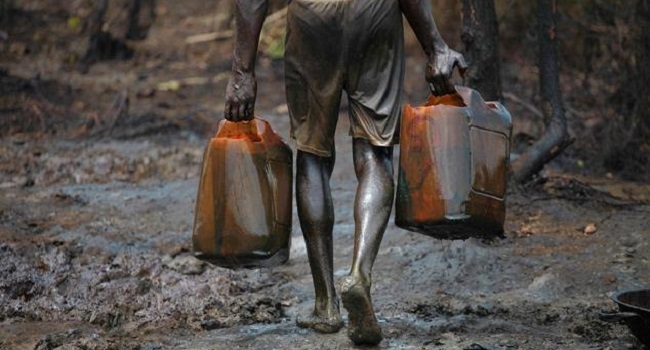Business
UN report says Nigeria lost $2.8bn to oil related crimes in 2018

A report by the Secretary General of the United Nations on the activities of the United Nations Office for West Africa and the Sahel, UNIWAS, has said that Nigeria lost an estimated $2.8 billion in revenue due to oil related crimes in 2018.
The report, which was released in New York on Monday, covered from July 1, 2018 to Dec. 31, 2018.
The report said: “Maritime crime and piracy off the coast of West Africa continued to pose a threat to peace, security and development in the region.
“Oil-related crimes resulted in the loss of nearly 2.8 billion dollars in revenues last year in Nigeria, according to government figures.
“Between January 1 and November 23, there were 82 reported incidents of maritime crime and piracy in the Gulf of Guinea.’’
It also noted, that compared to what obtained in the previous report, there was an increase in drug trafficking throughout West Africa and the Sahel.
“In Benin, the Gambia and Nigeria, more than 50 kilogrammes of cocaine were seized between July and October by joint airport interdiction task forces.
“During the same period, joint airport interdiction task forces seized more than six kilogrammes of methamphetamines, eight kilogramme of heroin (double the amount in the first half of 2018) and 2.6 tonnes of cannabis.
“Drug production across the region was also reportedly on the rise, with more than 100 kilogrammes of ephedrine and phenacetin seized by competent authorities,’’ the report said.
The UN report further revealed that the during it covered, conflicts between farmers and herders resulted in loss of lives, destruction of livelihoods and property, population displacements and human rights violations and abuses.
Read also: Crude oil prices rise in hope of resolution of US- China trade war
It also added that outbreaks of violence were recorded in many states across Nigeria, although with more frequency in the Middle Belt region, as well as Adamawa and Taraba, adding that the rise in conflict between farmers and herders was closely linked with demographic pressures, desertification and the attendant loss of grazing reserves and transhumance routes, which had been exacerbated by climate change.
The report further identified others to include challenges in the implementation of effective land management and climate change adaptation policies, and limited enforcement of existing pastoral laws.
Political and economic interests, the erosion of traditional conflict resolution mechanisms, and weapons proliferation, were also listed as some of the other factors attributed to the increased cases of herders-farmers conflict.
Join the conversation
Support Ripples Nigeria, hold up solutions journalism
Balanced, fearless journalism driven by data comes at huge financial costs.
As a media platform, we hold leadership accountable and will not trade the right to press freedom and free speech for a piece of cake.
If you like what we do, and are ready to uphold solutions journalism, kindly donate to the Ripples Nigeria cause.
Your support would help to ensure that citizens and institutions continue to have free access to credible and reliable information for societal development.
























